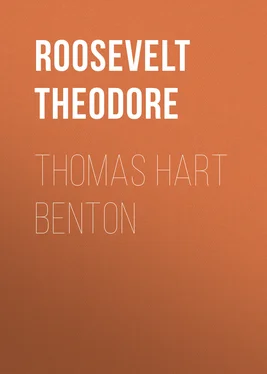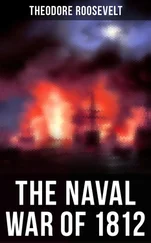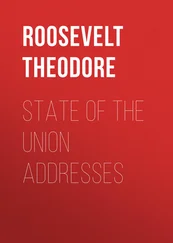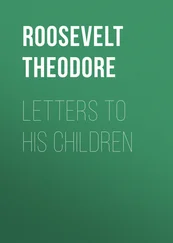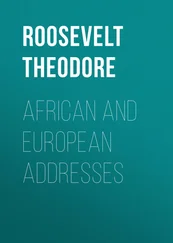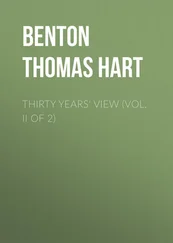Theodore Roosevelt - Thomas Hart Benton
Здесь есть возможность читать онлайн «Theodore Roosevelt - Thomas Hart Benton» — ознакомительный отрывок электронной книги совершенно бесплатно, а после прочтения отрывка купить полную версию. В некоторых случаях можно слушать аудио, скачать через торрент в формате fb2 и присутствует краткое содержание. Жанр: foreign_prose, История, foreign_edu, foreign_antique, на английском языке. Описание произведения, (предисловие) а так же отзывы посетителей доступны на портале библиотеки ЛибКат.
- Название:Thomas Hart Benton
- Автор:
- Жанр:
- Год:неизвестен
- ISBN:нет данных
- Рейтинг книги:4 / 5. Голосов: 1
-
Избранное:Добавить в избранное
- Отзывы:
-
Ваша оценка:
- 80
- 1
- 2
- 3
- 4
- 5
Thomas Hart Benton: краткое содержание, описание и аннотация
Предлагаем к чтению аннотацию, описание, краткое содержание или предисловие (зависит от того, что написал сам автор книги «Thomas Hart Benton»). Если вы не нашли необходимую информацию о книге — напишите в комментариях, мы постараемся отыскать её.
Thomas Hart Benton — читать онлайн ознакомительный отрывок
Ниже представлен текст книги, разбитый по страницам. Система сохранения места последней прочитанной страницы, позволяет с удобством читать онлайн бесплатно книгу «Thomas Hart Benton», без необходимости каждый раз заново искать на чём Вы остановились. Поставьте закладку, и сможете в любой момент перейти на страницу, на которой закончили чтение.
Интервал:
Закладка:
But the most famous of Benton's affrays was that with Jackson himself, in 1813. This rose out of a duel of laughable rather than serious character, in which Benton's brother was worsted by General Carroll, afterwards one of Jackson's lieutenants at New Orleans. The encounter itself took place between the Benton brothers on one side, and on the other, Jackson, General Coffee, also of New Orleans fame, and another friend. The place was a great rambling Nashville inn, and the details were so intricate that probably not even the participants themselves knew exactly what had taken place, while all the witnesses impartially contradicted each other and themselves. At any rate, Jackson was shot and Benton was pitched headlong down-stairs, and all the other combatants were more or less damaged; but it ended in Jackson being carried off by his friends, leaving the Bentons masters of the field, where they strutted up and down and indulged in a good deal of loud bravado. Previous to this Benton and Jackson had been on the best of terms, and although there was naturally a temporary break in their friendship, yet it proved strong enough in the end to stand even such a violent wrench as that given by this preposterously senseless and almost fatal brawl. They not only became completely reconciled, but eventually even the closest and warmest of personal and political friends; for Benton was as generous and forgiving as he was hot-tempered, and Jackson's ruder nature was at any rate free from any small meanness or malice.
In spite of occasional interludes of this kind, which must have given a rather ferocious fillip to his otherwise monotonous life, Benton completed his legal studies, was admitted to the bar, and began to practice as a frontier lawyer at Franklin. Very soon, however, he for the first time entered the more congenial field of politics, and in 1811 served a single term in the lower house of the Tennessee legislature. Even thus early he made his mark. He had a bill passed introducing the circuit system into the state judiciary, a reform of much importance, especially to the poorer class of litigants; and he also introduced, and had enacted into a law, a bill providing that a slave should have the same right to the full benefit of a jury trial as would a white man suffering under the same accusation. This last measure is noteworthy as foreshadowing the position which Benton afterwards took in national politics, where he appeared as a slave-holder, it is true, but as one of the most enlightened and least radical of his class. Its passage also showed the tendency of Southern opinion at the time, which was undoubtedly in the direction of bettering the condition of the blacks, though the events of the next few years produced such a violent revulsion of feeling concerning the negro race that this current of public opinion was completely reversed. Benton, however, was made of sturdy stuff, and as he grew older his views on the question did not alter as did those of most of his colleagues.
Shortly after he left the legislature the War of 1812 broke out, and its events impressed on Benton another of what soon became his cardinal principles. The war was brought on by the South and West, the Democrats all favoring it, while the Federalists, forming the then anti-Democratic party, especially in the Northeast, opposed it; and finally their more extreme members, at the famous Hartford Convention, passed resolutions supposed to tend towards the dissolution of the Union, and which brought upon the party the bitter condemnation of their antagonists. Says Benton himself: "At the time of its first appearance the right of secession was repulsed and repudiated by the Democracy generally.... The leading language in respect to it south of the Potomac was that no state had a right to withdraw from the Union, … and that any attempt to dissolve it, or to obstruct the action of constitutional laws, was treason. If since that time political parties and sectional localities have exchanged attitudes on this question, it cannot alter the question of right." For, having once grasped an idea and made it his own, Benton clung to it with unyielding tenacity, no matter whether it was or was not abandoned by the majority of those with whom he had been in the habit of acting.
Thus early Benton's political character became moulded into the shape which it ever afterwards retained. He was a slave-holder, but as advanced as a slave-holder could be; he remained to a certain extent a Southerner, but his Southernism was of the type prevalent immediately after the Revolution, and not of the kind that came to the fore prior to the Rebellion. He was much more a Westerner in his feelings, and more than all else he was emphatically a Union man.
Like every other hot spirit of the West—and the West was full of little but hot spirits—Benton heartily favored the War of 1812. He served as a colonel of volunteers under Jackson, but never saw actual fighting, and his short term of soldiership was of no further account than to furnish an excuse to Polk, thirty-five years later, for nominating him commanding general in the time of the Mexican War,—an incident which, as the nomination was rejected, may be regarded as merely ludicrous, the gross impropriety of the act safely defying criticism. He was of genuine use, however, in calling on and exciting the volunteers to come forward; for he was a fluent speaker, of fine presence, and his pompous self-sufficiency was rather admired than otherwise by the frontiersmen, while his force, energy, and earnestness commanded their respect. He also, when Jackson's reckless impetuosity got him into a snarl with the feeble national administration, whose imbecile incapacity to carry on the war became day by day more painfully evident, went to Washington, and there finally extricated his chief by dint of threatening that, if "justice" was not done him, Tennessee would, in future political contests, be found ranged with the administration's foes. For Benton already possessed political influence, and being, like most of his class, anti-Federalist, or Democratic, in sentiment, was therefore of the same party as the people at Washington, and was a man whose representations would have some weight with them.
During his stay in Tennessee Benton's character was greatly influenced by his being thrown into close contact with many of the extraordinary men who then or afterwards made their mark in the strange and picturesque annals of the Southwest. Jackson even thus early loomed up as the greatest and arch-typical representative of his people and his section. The religious bent of the time was shown in the life of the grand, rugged old Methodist, Peter Cartwright, who, in the far-off backwoods, was a preacher and practical exponent of "muscular Christianity" half a century before the day when, under Bishop Selwyn and Charles Kingsley, it became a cult among the most highly civilized classes of England. There was David Crockett, rifleman and congressman, doomed to a tragic and heroic death in that remarkable conflict of which it was said at the time, that "Thermopylæ had its messengers of death, but the Alamo had none;" and there was Houston, who, after a singular and romantic career, became the greatest of the statesmen and soldiers of Texas. It was these men, and their like, who, under the shadow of world-old forests and in the sunlight of the great, lonely plains, wrought out the destinies of a nation and a continent, and who, with their rude war-craft and state-craft, solved problems that, in the importance of their results, dwarf the issues of all European struggles since the day of Waterloo as completely as the Punic wars in their outcome threw into the shade the consequences of the wars waged at the same time between the different Greek monarchies.
Benton, in his mental training, came much nearer to the statesmen of the sea-board, and was far better bred and better educated, than the rest of the men around him. But he was, and was felt by them to be, thoroughly one of their number, and the most able expounder of their views; and it is just because he is so completely the type of a great and important class, rather than because even of his undoubted and commanding ability as a statesman, that his life and public services will always repay study. His vanity and boastfulness were faults which he shared with almost all his people; and, after all, if they overrated the consequence of their own deeds, the deeds, nevertheless, did possess great importance, and their fault was slight compared to that committed by some of us at the present day, who have gone to the opposite extreme and try to belittle the actions of our fathers. Benton was deeply imbued with the masterful, overbearing spirit of the West,—a spirit whose manifestations are not always agreeable, but the possession of which is certainly a most healthy sign of the virile strength of a young community. He thoroughly appreciated that he was helping to shape the future of a country, whose wonderful development is the most important feature in the history of the nineteenth century; the non-appreciation of which fact is in itself sufficient utterly to disqualify any American statesman from rising to the first rank.
Читать дальшеИнтервал:
Закладка:
Похожие книги на «Thomas Hart Benton»
Представляем Вашему вниманию похожие книги на «Thomas Hart Benton» списком для выбора. Мы отобрали схожую по названию и смыслу литературу в надежде предоставить читателям больше вариантов отыскать новые, интересные, ещё непрочитанные произведения.
Обсуждение, отзывы о книге «Thomas Hart Benton» и просто собственные мнения читателей. Оставьте ваши комментарии, напишите, что Вы думаете о произведении, его смысле или главных героях. Укажите что конкретно понравилось, а что нет, и почему Вы так считаете.
